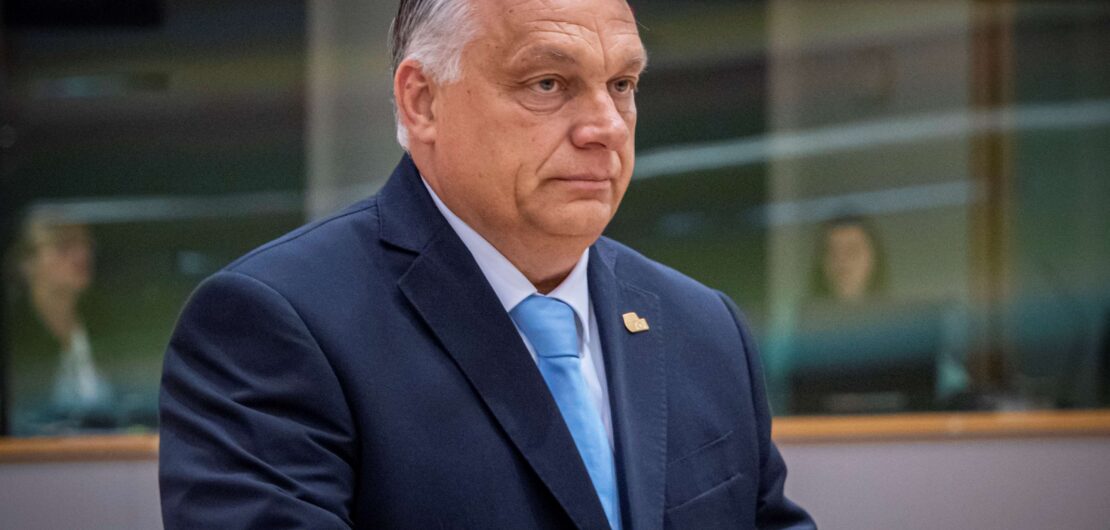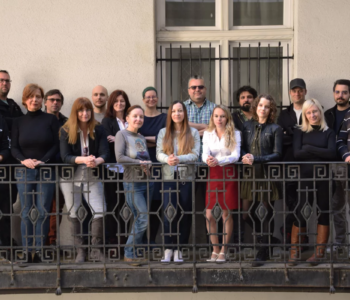 Library
Library
Hungary: Draft Sovereignty Protection Act poses fresh threat to…
Hungary: Draft Sovereignty Protection Act poses fresh threat to independent media
The Media Freedom Rapid Response (MFRR) today alerts the European Union about the chilling impact that the Hungarian ruling party’s proposed Sovereignty Protection Act will have on what remains of the country’s embattled independent media community.
Our organisations stress that while media are not named directly within the text of the draft bill, the intentionally vague language and broad scope for application of the proposed law would effectively open the door to state-sponsored pressure on those media which receive foreign funding and produce journalism critical of the government.
The draft Sovereignty Protection Act is therefore the latest prong of a decade-long campaign by the government of Prime Minister Victor Orbán to harass critics and suppress democratic checks and balances. This has been effected in part through measures that restrict, punish, and stigmatize critical journalism and NGOs that are deemed to be hostile to national interests.
The bill, submitted to parliament on 21 November, would establish a new office headed by an individual appointed directly by the Prime Minister with a six-year mandate. Its main task would be to map and report on perceived threats to Hungary’s national sovereignty and identify bodies or individuals suspected of serving malign foreign interests. All foreign funding of parties’ election campaigns would be criminalised.
This new office would have broad investigatory powers to demand documents, financial records or data of any organisation or body operating in Hungary, including civil society groups, media organisations or journalist associations. It would publish public reports about these bodies’ allegedly negative impact on Hungarian public discourse or politics, with a focus on election periods. Organisations adjudged to be undermining national sovereignty could be unofficially labelled as such by the body in its reports.
While media and media activities are not referenced directly in the text, the vague language of the bill means it could easily be applied to media organisations and individual journalists. Within the current parameters, any media receiving foreign funding could be accused of undermining Hungarian sovereignty by spreading “disinformation”, carrying out activities which are “aimed at influencing the democratic debate” or “aimed at influencing the will of voters”. Domestic media freedom groups registered in Hungary could be included within the scope of the law, while international media freedom organisations carrying out work in the country could also be stigmatised in reports by the proposed Sovereignty Protection Office. Although it will be tasked with preparing recommendations, the body would have no legal powers to issue sanctions.
Government figures have indicated that the objective of the law is purely to stop domestic political actors from accepting foreign funds. However, when the bill was first announced, a leading Fidesz politician said that among other intended targets were so-called “dollar media” and “Soros media” – pejorative terms used to label media receiving money from the U.S. or European Union.
The bill therefore fits against the backdrop of a campaign of stigmatisation since the 2022 general election, and beyond, against media which receive foreign grants and funding. Last year, an organisation close to the government published a report examining the funding structure of several of the leading independent media, suggesting they were serving foreign interests. If this new body were to become operational, it would hang like a sword over the independent media and NGOs and represent an institutionalised escalation of pressure over acceptance of foreign funds.
Over the past decade, as numerous reports have documented, the Fidesz government has deliberately distorted the media market to weaken the finances of independent media. This has included abusing state advertising, pressuring private advertisers, engaging in smear campaigns against independent media and other tactics that drive readers away, using state funds to bankroll otherwise economically unviable pro-government media, and selectively applying competition law. Numerous independent outlets did not survive this onslaught, either closing or being sold off to pro-government owners. Those independent media that remain have been forced to modify their business models toward subscription systems and grants from foreign donors in order to survive and continue their watchdog work. This bill and the attacks on foreign funding must therefore be seen as the latest effort to undermine the business models and financial sustainability of the independent press.
The dire conditions for media freedom and independent journalism in Hungary have been constructed by the Fidesz government over the past decade under the eyes of the European Union. For too long, nothing was done to challenge the anti-pluralistic consolidation of a pro-government media bubble and the slow eradication of bastions of professional journalism through regulatory abuses and the politically-engineered takeovers of media houses. While the EU’s draft European Media Freedom Act (EMFA) does represent a principled effort to safeguard media pluralism and freedom in Member States, its fate remains uncertain.
As the debate continues in the Hungarian parliament, the EU must not flinch in its opposition to this bill. If the package of amendments is ultimately passed and the constitution and criminal code are changed by the parliament with Fidesz’s two-thirds majority, plans should already be in place for the EU Commission to launch infringement proceedings against Hungary and challenge the law in the EU courts. Even if the bill is never passed, the text and its proposed measures will have a chilling effect in the signal they send. We jointly call on the Hungarian government to scrap the bill and refrain from all forms of pressure on the media and NGOs.
In the coming weeks, our MFRR consortium partner ARTICLE 19 Europe will prepare a thorough legal assessment of the law’s alignment with European law and international media freedom standards. This will outline in detail the severity of the threat posed by the draft Sovereignty Protection Act to media and civil society organisations. Our organisations remain committed to protecting what remains of independent and pluralistic journalism in Hungary.
This statement was coordinated by the Media Freedom Rapid Response (MFRR), a Europe-wide mechanism which tracks, monitors and responds to violations of press and media freedom in EU Member States and candidate countries.











